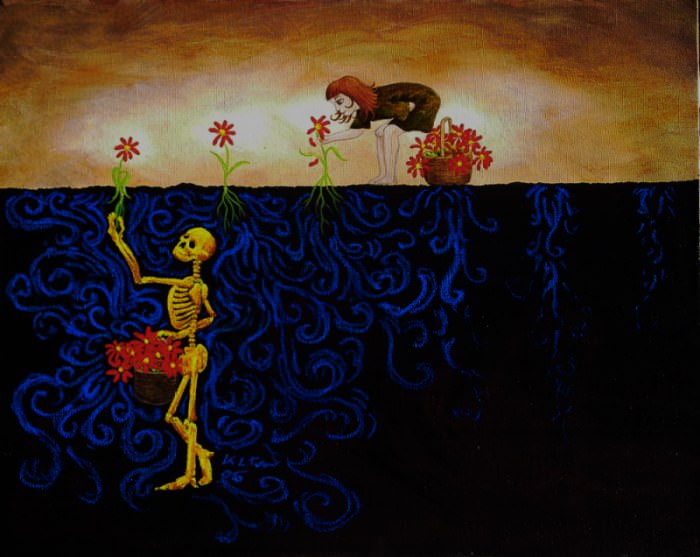Hello you beautiful person!
Welcome to the third part of English Idioms with Flowers. Just in case you didn’t see them, here’s Part I and Part II. Enjoy!
Mighty oaks from little acorns grow
This expression means that big or great things start very small, everything always began a lot smaller than it is now.
Example:
“John is only 6 but he’s already such a little scientist! Mighty oaks from little acorns grow and I think he’ll be a great scientist one day”
Never a rose without the prick
This means that good things always have something bad as well; like the thorns on the stem of a rose. Thorns are sharp point on the stem of some plants.
Example:
“Winning the lottery was an incredible experience, but lots of people wanted me to give them money” “Never rose without a prick”
Nip it in the bud
If you nip something in the bud, you deal with a problem when it is still small, before it can grow into something serious. If someone is doing something annoying, you can ask them to “nip it in the bud”.
Example:
“If you don’t nip hitting your little sister in the bud you won’t get any ice cream!”
No bed of roses
If something isn’t a bed of roses, it is difficult.
Example:
“Studying law is no bed of roses, it’s lots of hours of work and no sleep. But I know I’ll get a good job when I finish”
Old chestnut
An old chestnut is something that has been repeated so many times that it has lost its impact.
Example:
“Oh, not that old chestnut! You are always talking about the same thing”
Out of the woods
If you are out of the woods, you have emerged safely from a dangerous situation.
Example:
“Jenny is out of the woods: nobody discovered she stole the money and now everybody has forgotten”
Pushing up the daisies
If someone is said to be pushing up the daisies, they are dead. Daisies are small white and yellow flowers and because people are often buried in the ground, it is said that they are pushing the daisies up.
Example:
“I just found out Nora is pushing up the daisies… nobody told me she had died last year”.
Do you think you’ll use some of these expressions? Which one?

 ABA Journal The digital English academy
ABA Journal The digital English academy





